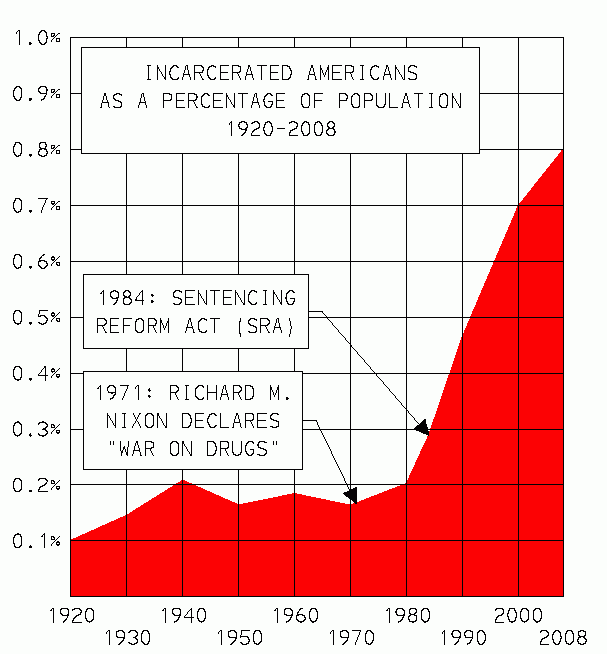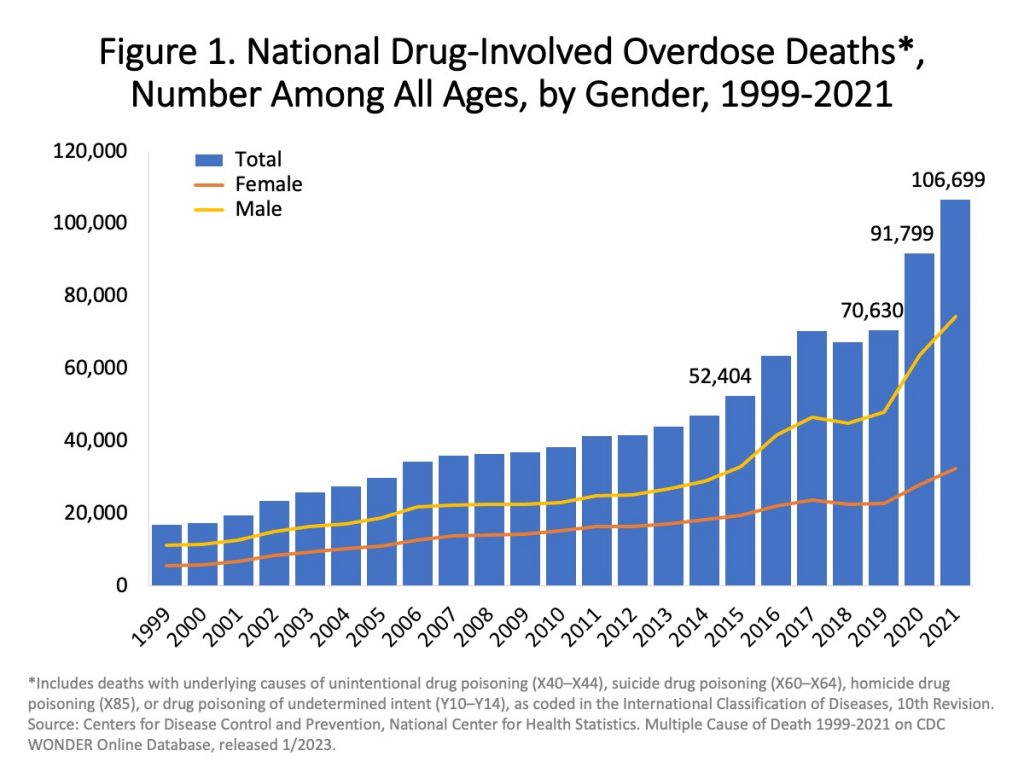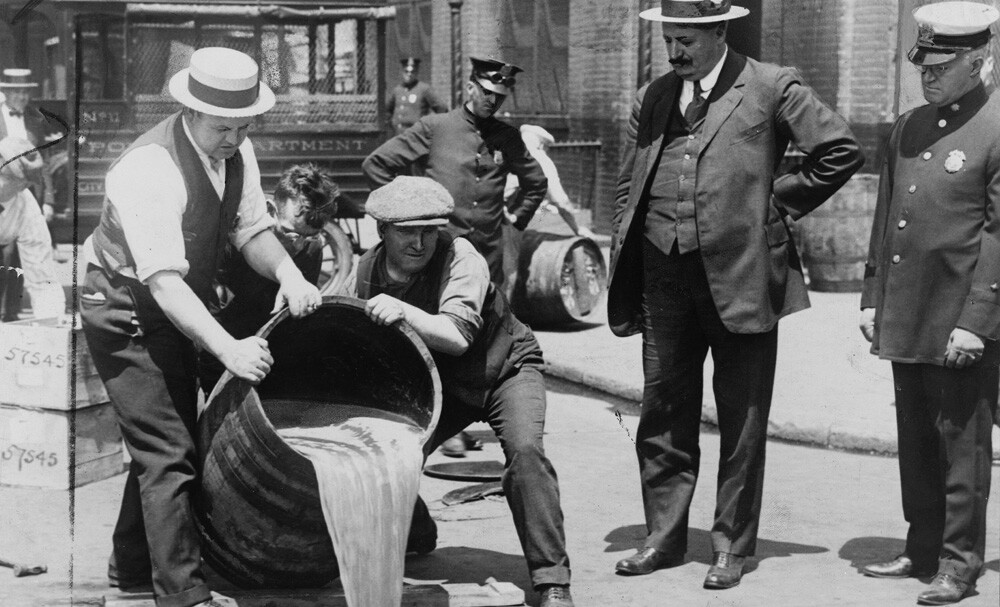How is legalization preventing harm from drugs?
“The War on Drugs was lost the moment law enforcement took up arms.” This is a quote, though I sadly have lost where it is from. So how is legalization preventing harm? I stand by this quote, as several statistics I will try to show in this article proves this statement. I am going to go a little through the history, show to the different statistics, and link them to events.
The War on Drugs began in June 1971 when US President Richard Nixon declared drug abuse to be “public enemy number one” and increased federal funding for drug-control agencies and drug-treatment efforts. Drugs wasn’t criminalized by Nixon, it had been illegal for a long time, and for atleast 50 years prior, minor adjustments in laws had minor effects on incarceration. John Ehrlichman, an aide to Nixon, said that Nixon used the War on Drugs to criminalize and disrupt the black and hippie communities and their leaders. Communities that during Nixon’s reign caused lots of problems with civil unrest movements, protests against wars abroad, etc.
Propaganda
Propaganda against drugs, and work to prevent addiction and drug abuse started ages before Nixon’s War on Drugs even started. One of the earliest attempts on preventing youths to experiment with drugs is the propaganda movie Reefer Madness (1936). It was referenced in education against drugs even until I was in junior high (early 1990s), but as I see it seriously fails in warning against drugs, as the consequences as shown in the movie is so exagerated and hillarious that any informed teen can see streight through it.
Incarceration
One of the most quantifying results of the War on Drugs have been incarceration. As the war intensified, law enforcement agencies got financing, weapons, training, and legal resources, the number of incarcerated have increased. Mainly incarceration have targeted users.

Graph showing US incarceration as a percentage og population from 1920 to 2008. Note the arrows on 1971 and 1984.
There was no immediate effects on the war. The agencies that have carried out the war wasn’t established yet, instructions to police to target drugs, or to train squads for searching for drugs wasn’t in place yet. The first years it was more used to break up gatherings of hippies or blacks.
Incarceration really took off with the Sentencing Reform Act of 1984.
Even though the drug producers, trafficers, and the dealers also are targeted by the police, these almost always get away with it. The main part of those incarcerated are users. A large part taken with amounts so small it is considered “for personal use”.
There is an almost direct corrolation between War on Drugs and Overdose Deaths. The more force the War on Drugs use, the more users are stigmatised and forced outside society, the more likely it is they try to overdose. On the same time, the more likely it is the drugs are impure and strengths varying, increasing the chance for unvoluntare overdosing.

…
Prohibition of alcohol

Prohibition against alcohol was tried in US from 1920 to 1933. Several other countries had prohibition laws roughly the same period. The result was underground clubs serving alcohol, widespread moonshining, smugling, and gangsters became rich and powerful on it. We are seeing the very same tendencies on the War on Drugs. Gangsters controls the entire supply chain of illegal drugs.
Legalization preventing harm
So how is legalization preventing harm? The answer is complex, with many factors contributing together. Some of the reasons are also valid for decriminalization, but my opinion is that decriminalization will not solve the base problems, just some of the causes of prohibition.
- Gang violence: when criminal gangs no longer fight to control terf for illegal distribution of drugs, gang violence will withdraw together with gang influence of certain areas.
- Regulated sales: when a product is legal for sale, the conditions for sale can be regulated. Examples of regulation is licensed sellers, age restrictions, etc.
- Redusing stigma: many users of illegal substances experience stigma. Stigma can result in people who need help are being pushed away from the help they need. By redusing stigma, more people with problematic use will look for help.
- Law enforcement resources: law enforcement use insane amounts on the war on drugs. But it doesn’t seem any amount are able to make any reduction in illegal drugs circulating. By legalization law enforcement can free up resources better used in fighting other types of crime.
- Healthcare: many narcotic substances on the list of illegal drugs have medicinal purposes. By legalization, the barrier of using such drugs for treatment is significantly lower. This can allow patients have a wider range of medications reducing the risk of medicine addiction and negative bi-effect symptomes.
- New industries: a regulated marked would require products made with quality control. Most consumer product industries have tight quality control of their products. Marking on packages indicating amounts of different substances will allow users to know the strength of the products they consume. Quality control related to the amount of high inducing substances will be key in preventing harmful usages and dangerous effects, i.e., overdosing.
- Overdose: overall legalization will result in far less overdose deaths. First of all regulated production will mean quality control. It will be just as clear how much THC a product contains, as we are used to from alcohol marking. Second is that with law enforcement not targeting the users, more will be willing to contact emergency numbers when suspecting a possible overdose.
War on Drugs has failed
As current president of Colombia, Gustavo Petro states, instead of targeting the social and economic reason of drug abuse, the War on Drugs targets, incarcerates, and kills the users of the drugs, the supply chain, and the production. The cartels that have controlled the trade since the beginning of this war have only been empovered and become richer as a consequence. Thousands of people are killed every year in this war, thousands of people die from overdoses every year because of this war.
My point is that there is an inherited demand for drugs, causing a market. And somebody will supply the drugs one way or another until the market is satisfied. If we want control on it, i.e. control on origin, age of buyers, restrict times of trade, etc. The only way to go is to legalize it and put it into a regulated control. Several countries that have legalized in the past decades have seen benefits in reduction in violent crimes, reduction in hospitalization because of drug related injuries, reduction in overdoses, etc.


